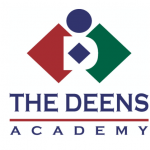Middle School ( Grade 5-8)
We have created an in-house curriculum for the middle school, comprising Grades V to VIII. Our curriculum, during these crucial years in a child’s life, is geared towards facilitating a meaningful and happy transition into adolescence. Beyond lesson plans and tests, the syllabus also focuses on empowering students with knowledge, self-awareness and self-confidence.
- Academics
- Classroom
- Assessment
Academics
The Curriculum for Middle school includes:-
- Honing of listening, speaking, reading and writing skills in English & 2nd language (Hindi/French/ Kannada/Urdu)
- Basic conversational skills and simple reading in 3rd language- grade 7 onwards ( Kannada/ Sanskrit/Hindi)
- Kadaya Kannada continues as compulsory subject until Grade 6
- For children who haven’t learnt any language other than English, we have an introduction to French/ Sanskrit as second language in grade 5
- Building a strong foundation in Mathematics, ( Math, Mindspark, Mental Math)
- Social studies (SST: Geography, History, Civics)
- Science( Biology, Chemistry and Physics)
- Nurturing an interest in General Knowledge, Art & Craft, Yoga, Music, Theatre and Dance
- An emphasis on physical education and sport
Classroom
We believe that learning evolves through a two-way interaction between facilitators and students. Hence, our classroom sessions focus on collaborative learning, rather than a one-sided approach. The teaching methodology, which we follow, is one of active engagement. We encourage our students to take initiative and engage with their own learning process. This self-directed approach not only enables children to get involved and learn actively through their own successes and failures, but also heightens their ability to think for themselves.
Assessments
At Deens Academy, we follow a system of continuous multi-disciplinary assessment, which could be formal or informal. We also follow a differentiated system of assessment to cater to the varied needs of children.
The child seeking entry into Deens is evaluated on his/her skills and abilities in order to determine the level in comparison to the expectation of the class into which admission is sought. This helps the teacher to modulate the classroom transaction in order to meet the child’s needs.
With the firm belief that education touches the mind as well as the being and each influences the other, information regarding each student is collected, taking into account their ability to apply knowledge, their learning process and how they conduct themselves in different situations. These findings form the basis of a continuous feedback process to the student and parents. A systematic follow up programme is built around these evaluations, be it on the academic, co-scholastic or value/attitudinal front.
Formative assessments are marked on varied tasks within a class, homework, class work, projects, presentations- each of which lends to assessment, projecting a different aspect of the child’s learning. We follow the CBSE pattern of cycle reviews, one formative assessments in each term and a summative assessment at the end of every term ( September SA1 and March SA2). A brief description of the portions covered and marking scheme is as follows
| Term 1 -100 marks | Term 2-100 marks | ||||||
| June-august | September | October- February | March | ||||
| Review 1-40 marks | NotebookAnd class test –
5 marks |
Subject enrichment project- 5 marks | Half yearly – 80 marks | Review 1-40 marks | NotebookAnd class test –
5 marks |
Subject enrichment project- 5 marks | Final Exam – 80 marks |
| Full Portion ( Completed Till Date ) | Full Portion (After Half yearly) | ||||||
| Full Portion( Completed Till Date ) | Full Portion( Completed Till Date ) | Portions which is completed after Half Yearly | Full portion of second term + 50% portion of 1st term | ||||
The school year is divided into 2 terms for grade 6-8.
The marks are published on the student ERP page. The students of grade 1-10 are evaluated by a 9 point grading system. Each grade, given on the basis of both formative and summative assessments will correspond to the range of marks indicated below:
| grade | A1 | A2 | B1 | B2 | C1 | C2 | D | E1 | E2 |
| marks | 91-100 | 81-91 | 71-80 | 61-70 | 51-60 | 41-50 | 33-40 | 22-32 | 0-21 |
Olympiad – The SOFworld provides competitive platform of IMO (International Math Olympiad), NSO (National Science Olympiad), NCO (National Cyber Olympiad) within the school premises which aims at enabling students to put his / her skills, memory, talent and knowledge to test.
Asset – ASSET Stands for Assessment of Scholastic Skills through Educational Testing. It is a scientifically designed, skill-based assessment test. Rather than testing rote learning, through multiple-choice questioning, it focuses on measuring how well SKILLS and CONCEPTS underlying the school syllabus have been learnt by the student. The test provides information on the strengths and weaknesses of individual students and also entire classes.
 Deens Academy Route to Excellence
Deens Academy Route to Excellence
